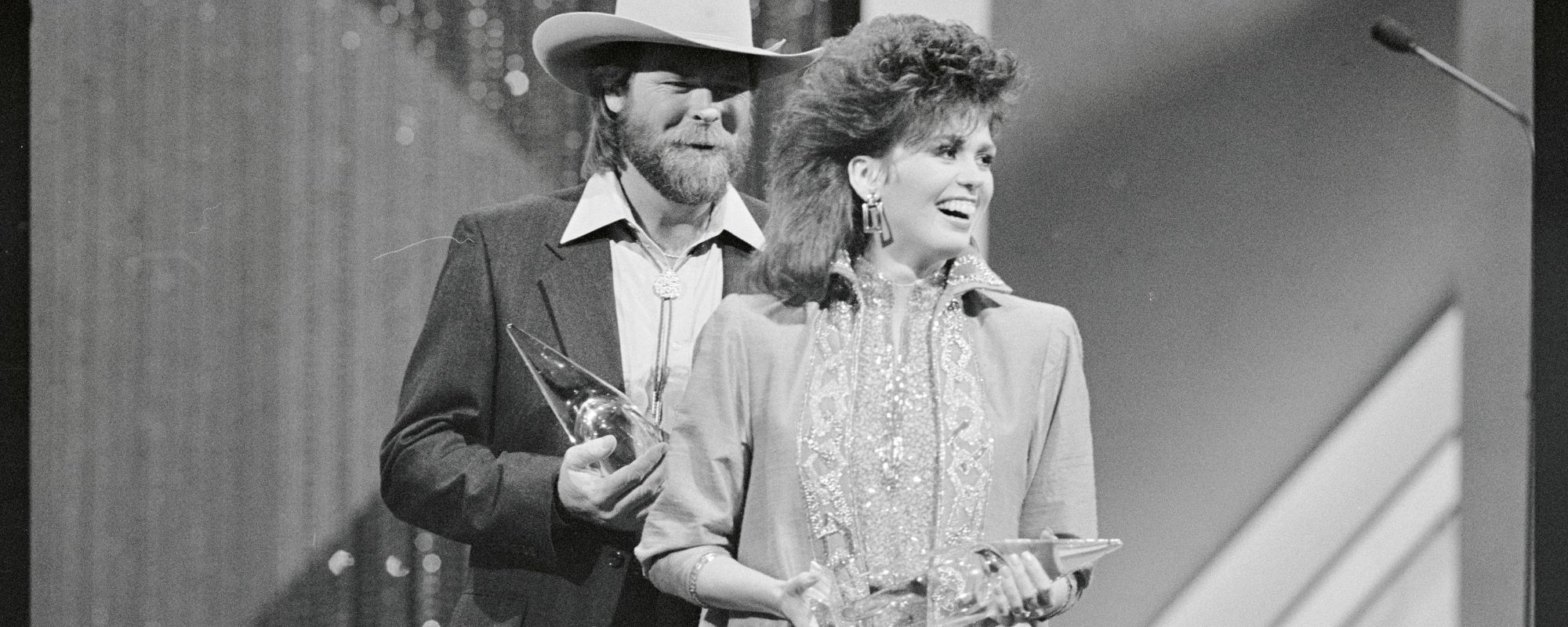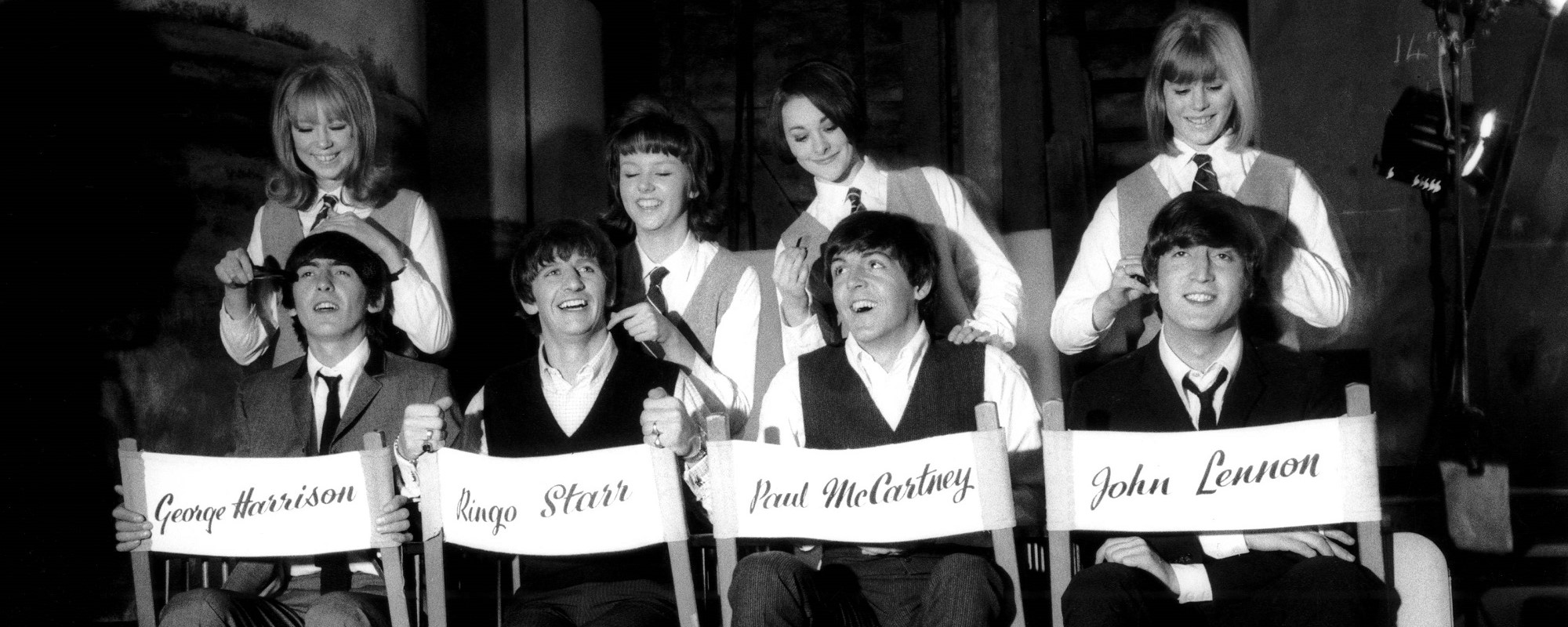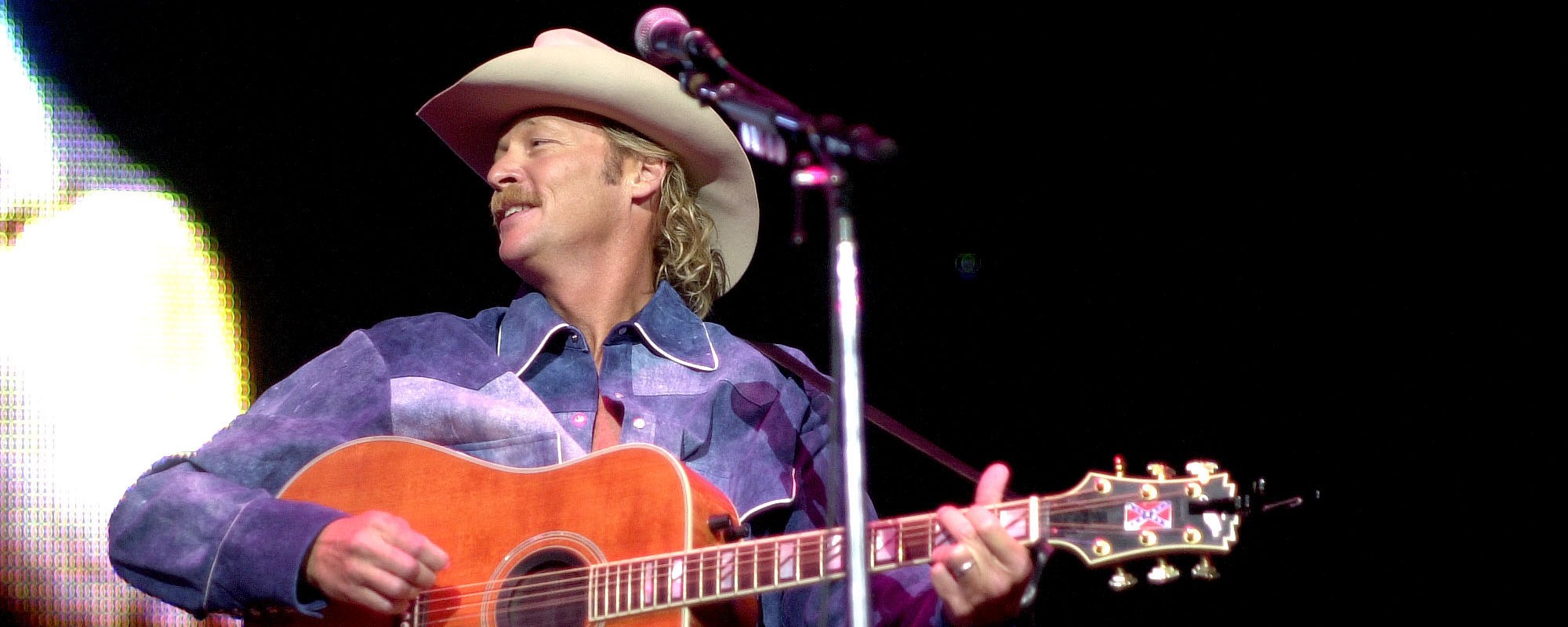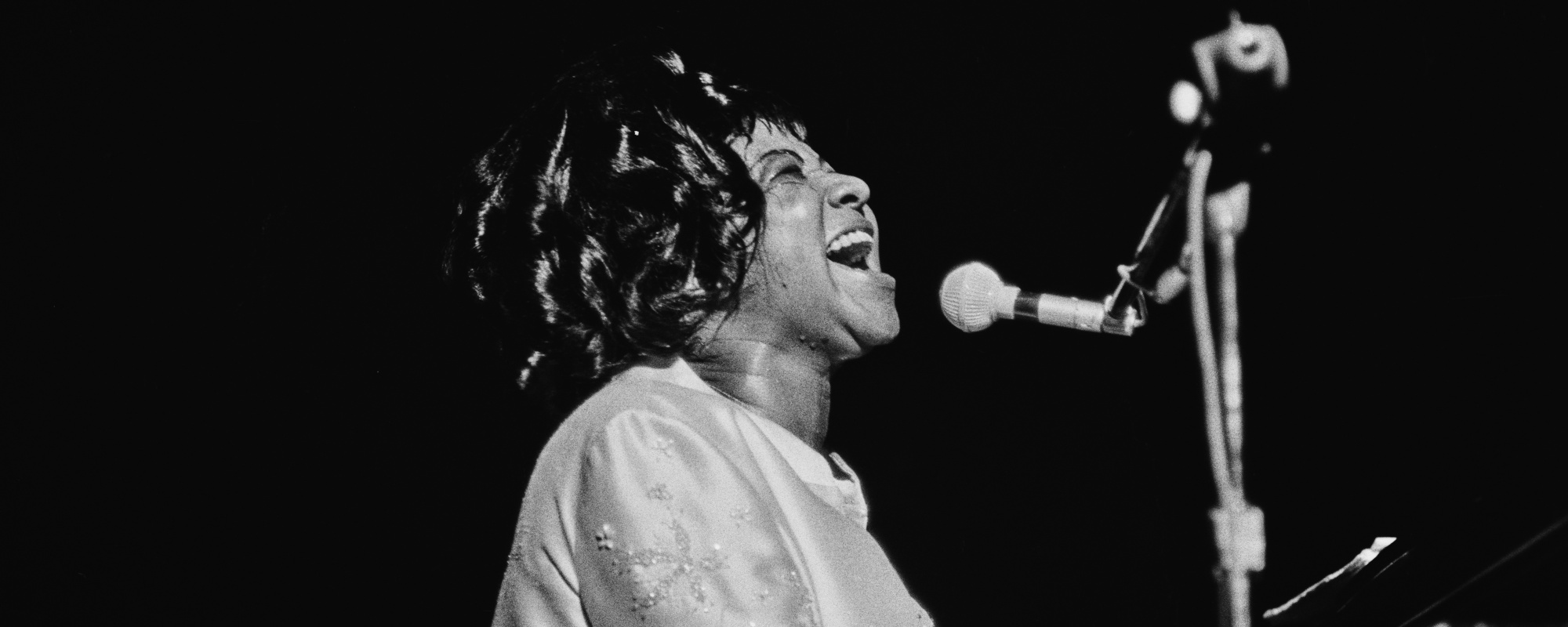On a flight from Miami to Los Angeles, Don Felder remembers the DC-10 reaching an altitude of 36,000 feet over the Gulf of Mexico when one of the engine cowlings under the left wing of the plane blew off, leaving a six-by-six-foot hole. At one point, the engine was on fire, and debris from the wing was getting sucked into the tail engine.
“It’s like somebody had thrown a car or a Volkswagen into that engine,” recalls Felder, who was seated next to his fellow Eagles bandmate Randy Meisner. Both believed the plane was ready to go down. “The stewardesses were screaming and crying and running up and down and were not helping,” adds Felder. “I’ll tell you that right now, when you get on the plane, pay attention to how to get the hell off the plane, because they’re not going to be able to help you.”
Meisner was also “freaking out,” says Felder, who told him, “Randy, if this is it, this is it. Just embrace it. It’s our time.”
Videos by American Songwriter

Eventually, the pilot cranked the one remaining engine under the right wing high enough to keep the plane in flight, giving them enough time to land in Tampa, Florida, on a foamed runway, with fire trucks and ambulances ready. “The nose gear was down, and the landing gear on the left wing that had blown up is gone, and there was one wheel,” recalls Felder. “He sets that down first, and then the plane just slides through this foam. It’s just all over the windows and everything, and we finally get off and slide down the ramps. Then there we are on television, crashing on that landing.”
The experience taught Felder to accept death when it comes. “I’ve come close to death numerous times,” he says, “and I just embrace it and go, ‘Yeah, I’m not going to go through this frightened.”
Road to Forever, Felder’s 2012 album, was a spiritual gaze at mortality, and he revisited some similar contemplations on his fourth solo album, The Vault—Fifty Years Of Music. “We’re all going to go through this experience where the end of the line is presented at times, but it’s going to be fine,” Felder says, reciting part of the chorus of the album’s second track, “Free at Last”: We’ll leave all these troubles behind and bask in the great divine.
“We’re all going to cross over, and we’re all going to be on the other side, and that’s OK,” he says. “There’s no reason to be afraid. It is part of a natural, spiritual growth to me, so I wanted to write a positive song about it, and being free of all the burdens and the heartaches and the tortures we’ve gone through in our life, and to be able to leave all of that behind.”
The Vault—Fifty Years Of Music also registers some of Felder’s earliest musical moments, including the opening country rocker “Move On,” the oldest track, and a song he originally wrote as his first submission when he joined the Eagles in 1974.
By the time Felder joined the Eagles for On the Border, the band was impressed by his playing slide guitar on “Good Day in Hell,” one of two songs he’s featured on. “The next day, I got a phone call from Glenn (Frey) asking me to join the band,” Felder recalls.
Felder later went on to co-write two songs (“Too Many Hands” and “Visions”) on the band’s fourth release, One of These Nights, in 1975, along with co-writing their classic “Hotel California” and “Victim of Love.” He went on to play on the Eagles’ 1979 album The Long Run, contributing songs “The Disco Strangler” and “Those Shoes,” before the band’s split in 1980.
Initially, “Move On” was recorded on a four-track TEAC tape recorder. At the time, Felder didn’t have drums, so he used a cardboard box and put a microphone on it. “I recorded two minutes of me playing drums on a cardboard box,” says Felder, who then added some chord progression to “Move On” along with some bass.
Early on with the Eagles, Felder remembers his high school classmate and founding Eagles member, guitarist Bernie Leadon, telling him ’’If you want to write songs for the Eagles, don’t write lyrics, don’t write melodies, just write music beds in a song structure—the intro, verse, chorus, verse, chorus, solo, chorus—just a framework.’”
“So I mixed that down onto a little cassette and gave a copy of it to Don Henley, just like Bernie suggested,” Felder says. “He [Henley] said, ‘I really like that. We should write a song called ‘Slide On,’ and I went, ‘That just sounds a little corny to me.’ We were getting ready to go on the road when I submitted it, so if anything, it was going to wind up on the next record, One of These Nights, which by that time, we had already written a lot of other stuff for.”
He knew Leadon was on to something since the guitarist co-wrote all the band’s 1972 hit “Witchy Woman” with Don Henley on the Eagles’ self-titled 1972 debut, which fared better on the charts ( No. 9) than the band’s classic debut “Take It Easy,” which peaked at No. 12.
“In my opinion, the combination of Don and Glenn [Frey] was the American Lennon and McCartney, just a great songwriting team,” Felder says, still very proud of his time with the Eagles, despite past rifts and legal battles with the band. In 1994, Felder rejoined the Eagles for their Hell Freezes Over tour and live album, which reunited the band’s The Long Run lineup of Henley, Frey, Joe Walsh, and Timothy B. Schmit.

The Eagles were inducted into the Rock & Roll Hall of Fame in 1998, and three years later, Felder was fired from the band. In 2001, Felder filed a lawsuit against the band for wrongful termination, which was later settled out of court in 2007.
Several years after the Eagles initially parted ways in 1980, Felder had already set off his solo career with his 1983 debut Airborne. He would continue collaborating with artists, including Michael Jackson, Stevie Nicks, Elton John, Joni Mitchell, Barbra Streisand, Paul Simon, and Alice Cooper, among many others—and also worked on some film soundtracks, including the 1981 animated film Heavy Metal andFast Times at Ridgemont High(1982) in the interim—before releasing his second album Road to Forever in 2012, followed by American Rock ’n’ Roll in 2019.
Around 2020, Felder started digging through old boxes of cassette recordings and found some of the songs that made it onto The Vault. After transferring the files to digital, Felder began rebuilding the tracks from chord progressions and rewriting others on guitar over piano, which is how Vault ballad, “Together Forever,” got its second life and features Felder’s daughter, Leah James, on vocals. “I got my daughter, Leah, to sing with me on it,” says Felder, “so we’ll be together forever on that song.”
Songwriting, says Felder, started “almost backwards” from writing the music beds and having lyrics put on top while in the Eagles. For The Vault, Felder took some advice from friend Shania Twain, who, he says, likes to write the lyrics for the chorus first. “She said, ‘Everything else just leads up to the story, and the money shot is the chorus,’” says Felder. “If you’ve got a strong chorus, you can back out of it with verses that lead up to it. But if you don’t have a good idea of where it’s going, it’s hard to write the lyrics for it.”
He adds, “I learned how difficult it is to just write music beds without any melody, so when I went back and heard those cassettes, I wrote the melody and lyrics. Each one of them took me back to exactly where I was when I wrote them.”
The Vault is an amalgamation of the years between the Eagles and Felder’s own solo excursions and back around again. And most retain the essence of the time they were written, from ‘80s pop-rock riffs on “Last All Night” to “Hollywood Victim,” which Felder wrote during the Hell Freezes Over era with the Eagles.
“We were just scampering to come up with stuff so we could do it, shoot the video, and get out on the road before we killed each other,” says Felder of the reunion.”So I wrote that for them.”
“I Like the Things You Do” and the reggae-bent “Digital World” are newer tracks, the latter, featuring Toto’s Steve Lukather, pushed the need to police the time spent using social media—You won’t find a real life on Facebook or Twitter / You’re just waste your time waster your day, grow bittersings Felder calling it the new techno drug.
“There’s a lot of the world going by that you’re not seeing and you’re not involved in, because you’re just staring at this screen,” says Felder. “When I go to the airport, and I look around, everybody is sitting there staring at their phone. Now, something can go viral literally overnight, and it goes down almost as quickly as it goes up. And it’s so easy for people to sit on a keyboard and hide behind that screen and say nasty things.”
The penultimate “Let Me Down Easy” features daughter Leah and granddaughter Eva Jenner, and Felder also revisits his “Heavy Metal,” featured in the film and on Airborne, with a rerecording. (The original “Heavy Metal (Takin’ a Ride)” features former Eagles bandmates Henley and Schmit on backing vocals.)
Along with Lukather, Toto’s David Paich, Steve Lukather, Joseph “Joe” Williams, and Greg Phillinganes are some of the guests who helped fill in the sound on The Vault, along with musicians Timothy Drury, Nathan East, Nina Winter, and Lenny Castro, and drummers Greg Bissonette, Brian Tichy, and Todd Sucherman, among others.
For Felder, who is about to embark on tour this summer with Styx and The Kevin Cronin Band, music is still his best compass. He ends the album on a more uplifting note with an orchestrated instrumental he remembers writing shortly after Frey’s death in 2016. “Blue Skies” leaves the album off as authentically as Felder started it.
“I just thought it was warm and beautiful, and a nice kiss goodbye,” says Felder. “I wish you nothing but blue skies.”
Photos by Michael Helms










Leave a Reply
Only members can comment. Become a member. Already a member? Log in.